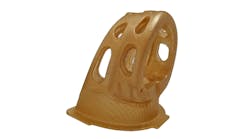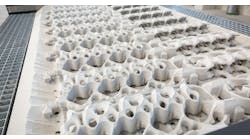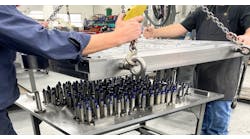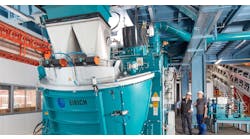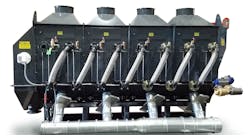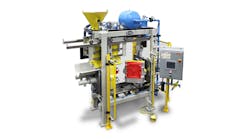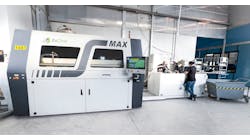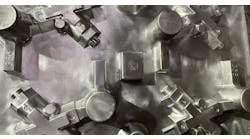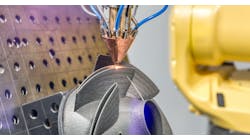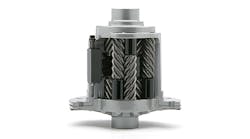LIFT, a manufacturing research initiative launched last year under the aegis of the U.S. Department of Defense and incorporating numerous industrial and academic interests, will concentrate its initial R&D on refining technologies for casting lightweight automotive transmission cases in iron.
“People don’t often think of iron alloys as lightweight, so this first project shows how we are really changing the thinking about manufacturing in America,” stated Larry Brown,
LIFT’s executive director. “We expect that by working together through LIFT, the collaborators from industry and academia will be able to accelerate the speed of turning their R&D into a production line process.”
LIFT — Lightweight Innovations for Tomorrow — is a “manufacturing innovation institute” operated by the American Lightweight Materials Manufacturing Innovation Institute, a partnership announced last year. Within the ALMMI partnership, the LIFT initiative is administered by the U.S. Navy Office of Naval Research. Beyond thin-wall casting, LIFT indicates it intends to study high-integrity casting and dissimilar metal casting, all three subjects being critical to manufacturing lighter, less expensive, and better performing parts for aerospace, automotive, and military systems.
As for the current, thin-wall iron casting “acceleration project,” approximately 44% of its estimated $1.34 million cost will be paid by the federal government; 56% will be supplied by industry and research partners.
The project’s principal industrial partner will be Grede Holdings LLC. Michigan Technological University will be the lead research partner. Also participating will be automotive tier suppliers Eaton Corp. and Comau, the Massachusetts Institute of Technology, and the American Foundry Society, among others. LIFT has dozens of partner among industrial and academic interests active in the automotive and aerospace supply chains.
Grede Holdings was formed in 2009 by investors consolidating the former Grede LLC and Citation Corp. organizations. The group now covers 13 foundries and three machine shops, where it manufactures gray and ductile iron castings, and specialty products like high-silicon molybdenum iron castings.
According to LIFT’s announcement, “integrating and implementing” manufacturing methods with different available alloys can decrease wall thicknesses of ductile iron cast parts by up to 50%, which could help to achieve weight savings of 30-50%.
Results Expected Soon
“Iron alloys have high stiffness and good strength. We will optimize composition and cooling rate utilizing Grede’s new high-precision molding machines to create thin-wall ductile iron components while maintaining desired microstructures and performance,” according to Paul Sanders, associate professor of Materials Science and Engineering at Michigan Tech.
He said the program would integrate “upfront modeling with local cast properties” to optimize component geometries.
Much of the research will be carried out at its St. Cloud, MN, foundry, and according to Larry Brown it should begin to report its results in “about a year.”
“During early product development, parts are designed to meet the limiting performance criteria,” observed Jay Solomond, Grede’s v.p. of engineering and technology at Grede. “This often results in parts being globally designed with extra material to meet the minimum requirements. However, this also often results in unnecessary weight to the overall part. We want to put the right amount of material just where it needs to be – and to replicate that on a scale for automotive production lines.”
The American Foundry Society’s involvement will help to disseminate information on using the new materials and techniques emerging from the project.
Brown said the LIFT would be announcing more technology projects and education and workforce development initiatives “on a regular schedule … to make sure we have people well trained in the innovations we are generating.”
